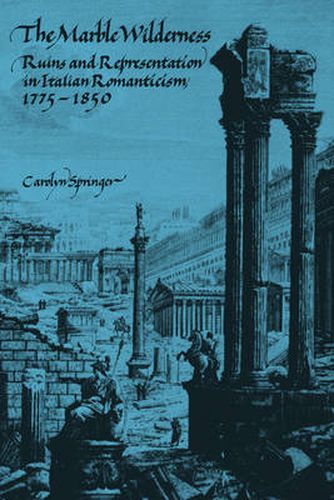Readings Newsletter
Become a Readings Member to make your shopping experience even easier.
Sign in or sign up for free!
You’re not far away from qualifying for FREE standard shipping within Australia
You’ve qualified for FREE standard shipping within Australia
The cart is loading…






In this 1987 text, by focusing on rhetoric, Dr Springer distinguishes between the encomiastic mode of the Papacy and the exhortatory mode of the Risorgimento. Springer shows that instead of concentrating on the pathos of the absence implicit in the ruined landscape of Rome, both the Church and its democratic opposition celebrated antiquity as a presence. Whereas the Church assembled the spoils of pagan Rome in the Vatican museums as proof of its temporal power, lay patriots from Foscolo to Mazzini appropriated the imagery of archaeology to call for a resurrection of Rome’s republican traditions. Thus, the book argues, they concurred, despite dramatic ideological differences, in invoking archaeology as a figure of cultural rehabilitation. By analyzing a wide variety of cultural representations, the author shows that the metaphor of archaeology was central to the rhetoric of Italian romanticism and equally adaptable to the reinforcement and subversion of political authority.
$9.00 standard shipping within Australia
FREE standard shipping within Australia for orders over $100.00
Express & International shipping calculated at checkout
In this 1987 text, by focusing on rhetoric, Dr Springer distinguishes between the encomiastic mode of the Papacy and the exhortatory mode of the Risorgimento. Springer shows that instead of concentrating on the pathos of the absence implicit in the ruined landscape of Rome, both the Church and its democratic opposition celebrated antiquity as a presence. Whereas the Church assembled the spoils of pagan Rome in the Vatican museums as proof of its temporal power, lay patriots from Foscolo to Mazzini appropriated the imagery of archaeology to call for a resurrection of Rome’s republican traditions. Thus, the book argues, they concurred, despite dramatic ideological differences, in invoking archaeology as a figure of cultural rehabilitation. By analyzing a wide variety of cultural representations, the author shows that the metaphor of archaeology was central to the rhetoric of Italian romanticism and equally adaptable to the reinforcement and subversion of political authority.